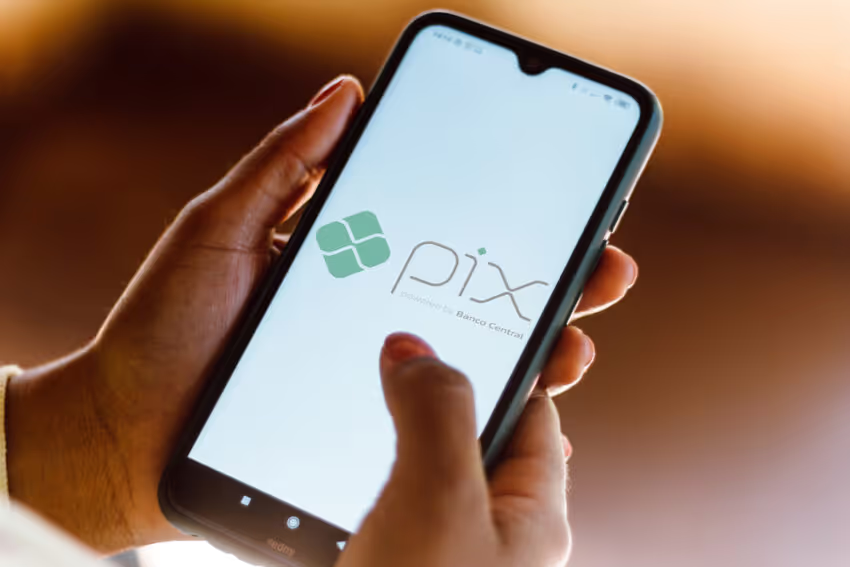Online payment: why include Pix in your payment options

Learn about Brazil’s online instant payment system, check out the latest data and see how to offer this payment option in your cross-border e-commerce.

Pix is an online payment method created in Brazil that is redefining bank and consumer relations. Launched in November 2020, the instant payment system developed by Brazil’s central bank already has over 530 million keys registered. In the first week of its launch, Pix registered 12.2 million transactions worth R$9.3 billion. According to the Brazilian Federation of Banks (FEBRABAN), 26 billion transactions were carried out as of September 30, 2022, worth R$12.9 trillion. In late 2022, for the first time Pix surpassed the mark of 100 million transactions in a single day, on the payment date of the second installment of the year-end 13th salary. According to the central bank, 104.1 million transactions were carried out, in the aggregate amount of R$60.3 billion, attesting to the relentless growth of this payment method. According to the Gmattos Payment study of November 2022, the acceptance of Pix by online retailers stands at 91.5%. Pix is currently the most used payment method in Brazil, which means that to serve this consumer market you must include Pix in your payment options. Keep reading to learn more about payment via Pix.
Pix for companies: how does it work?
The reasons that Pix is here to stay are many. Pix offers many advantages not only to consumers in general, but to companies as well. The reduction in costs and simplification of payment processes stimulate the growing use of Pix and can be seen directly in sales profit margins. Another key advantage of Pix is security. The exchange of information between users and financial institutions, as well as communication between them and the central bank, is encrypted and uses a digital certificate within the National Financial System Network (RSFN), where other options of the Brazilian Payment System (SPD), such as DOC and TED (bank transfers), are processed as well.
Corporate Pix: registration of keys
The Pix Key is how a bank account is identified, which facilitates transactions by eliminating the need to share bank information. Each individual or legal entity can register up to five keys at different financial institutions. Companies also can register their trade name to facilitate identification by consumers. But what many people do not know is that key registration is not required to remit or receive money via Pix. In other words, if you decide to add Pix as a payment method for your business, you can receive transfers (via TED or DOC) from clients that opt not to register a key. In addition to internet banking, customers also can use Pix to make payments at ATMs, lottery retailers and bank branches. Pix is a cheaper alternative than boleto, since banks charge a fee to issue the bank payment slip (mandatory since 2018). For consumers, there are no significant change or cost in the payment process.
Pix charges companies a fee: learn when they apply
Individuals have nothing to worry about when it comes to Pix fees. The central bank authorizes banks to charge fees when their customer service channels (in-person or phone) are used for a Pix transaction when they receive over 30 transfers per month, when they use a dynamic QR code or a QR Code from a paying legal entity payer to receive money or when an amount is sent to a bank account contractually defined as exclusively for commercial purposes. Note that the same Pix guidelines applicable to individuals apply to micro-entrepreneurs (MEI) and self-employed professionals. In the case of Pix transactions for legal entities, however, fees are charged depending on the financial or payment institution chosen to carry out the transactions. The central bank does not require banks to charge fees, but allows them to charge fees for transfers and purchases. Below are the cases in which banks charge Pix fees from Limited Liability Individual Companies (EIRELI):
- Corporate payer and individual receiver when the Pix transaction is carried out via manual data input, Pix key or payment initiation service.
- Corporate payer and corporate receiver when the bank information or Pix key is input manually.
- Individual payer and corporate receiver irrespective of how the Pix transaction is conducted.
- Corporate payer and corporate receiver when the Pix transaction is initiated via static or dynamic QR code. Pix fees also may be charged when a payment initiation service is used in association with Pix Collection and all data of the receiver user is informed.
How Pix transfers can be advantageous for your company
Before Pix, retailers, whether traditional or e-commerce (including cross-border), had to deal with two situations that represented a huge hindrance. When consumers pay with credit or debit card, merchants have to wait up to 45 days to receive the money, depending on their acquirer. When customers opt for payment via boleto, the settlement period is shorter, but the chance of abandonment rises, since they have to leave the store platform and access the bank environment to make the payment. Customers have around three days to pay a boleto, which is a rather long period when it comes to e-commerce. Meanwhile, the selected product is reserved for the customer in the retailer’s inventory control. This is a common practice and can lead to significant losses, especially on important sales dates, such as Black Friday.
Pix between different banks vs. TED and DOC bank transfers
Just one month after its launch, Pix overcame other payment methods used until then by Brazilians. The first was DOC bank transfers. By the next month (January 2021), the number of Pix transactions surpassed that of TED bank transfers. In March, Pix surpassed boleto payments. In May, the number of Pix transactions was higher than that of all other payment methods combined. The reasons for this phenomenon is ease of use, wide availability and the possibility of transferring money between accounts from different banks at no cost, while fees are charged for TED and DOC transfers.
Pix transfers are credited immediately
Pix transfers are processed instantly and 24/7, which makes the transaction faster for all parties involved. With the purchase approved immediately, the delivery term is shorter as well, improving the customer experience. Meanwhile, merchants receive the money within seconds and, thanks to the absence of intermediaries in the transaction, Pix fees are considerably lower.
Pix payments are free for individuals and can be used by unbanked consumers
One of the main challenges for digital entrepreneurs is offering inclusive payment options, since a large portion of the public does not have a bank account or credit card. According to Instituto Locomotiva, 34 million Brazilians are in this situation, most in the C, D and E income brackets. However, that does not mean they lack purchasing power and plans, since they spend around R$800 billion annually. As part of its commitment to foster financial inclusion, the central bank ensures that Pix transactions are free for individuals, irrespective of the amount or number of transfers.
Corporate Pix: new developments in 2023 also affect companies
Pix options are constantly evolving, with Pix Installments and Scheduled Pix two functionalities launched in 2022. Pix Withdrawal and Pix Change, which were launched in November 2021 to enable cash withdrawals from merchants, gained new limits on January 2, 2023, with the maximum cash amounts users can receive increasing R$500 to R$3,000 during the day and from R$100 to R$1,000 during the night. Another change that took effect in early 2023 is eliminating the requirement of setting a maximum limit per transaction. Currently, financial institutions can define the maximum amount per transaction as well as the total amount for a period of the day. In practice, if you have a R$100 limit per transaction and R$1,000 limit per period, you have to carry out 10 transfers if want to send the total amount permitted, with the change enabling the entire limit to be used in a single transaction. In the case of companies, each financial institution can determine their own criteria for setting limits. With regard to Pix International, the president of the central bank, Roberto Campos Neto, stated that new developments will be announced by mid-2023. The innovation is one of the most awaited, especially by the cross-border ecommerce sector.
Pix payment method: how to accept it?
Offering a local payment experience, such as Pix, is key to winning over Brazilian consumers. With Bexs Pay-In, you can access this market without having to set up a local company and receive settlement via any bank worldwide. Meanwhile, the Pay-Out solution enables people and businesses in Brazil to receive amounts from abroad instantly, via Pix. Contact our specialists and learn about our solutions. Posted on May 14, 2021Updated on January 17, 2023
